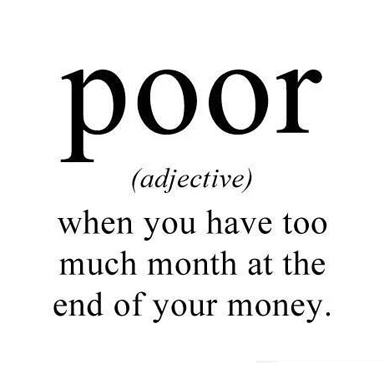A few years ago during the big mortgage meltdown, I became a homeowner for the first time. Although I purchased my first home, it was not one that I planned on living in; I had made the decision to become a real estate investor. Since then I have added one additional investment property bringing my current real estate holdings to two homes with three units. My brother also purchased a rental property in the same area with three units.
Being an investor is not all about sitting at home collecting rental checks; nor is it about handing your property over to a management company to deal with. My brother and I have had to learn, very quickly, how to spot issues before they become serious problems. The most common issue that we have run into involves rental scams.
As a landlord, I tend to focus on scams that originate from renters, but after establishing the site, MyTenantFromHell.com, I have also seen complaints about landlord scams a well. Today I would like to share with you the most common rental scams that I have seen online.
Renter Scams
- Your tenant is not who they say they are
Identity theft is a fact of life. According to the Bureau of Justice Statistics, about 8.6 million households experienced identity theft in 2010. How certain are you that the person who is renting your home is who they say that they are? Identity thieves do not care about ruining someone’s credit if they do not pay the rent because the consequences will be felt by the person whose identity has been stolen. Be sure to verify the identity of the individual that you are renting to b requesting official identification, a credit report and payroll stubs.
- Your tenant is a professional
A professional tenant is one who moves from house to house taking advantage of eviction rules and housing laws to stay in apartments rent free. This kind of tenant arms themselves with knowledge of the rules and exploits them to his/her advantage. If you’re lucky, you may get the first month’s rent and security deposit from this tenant. If your potential tenant has multiple evictions in their background or needs to move into your apartment ASAP because of landlord issues, this can be a red flag that your tenant might be a professional. In this case Google or your favorite search engine can be your very best friend.
- Moving from outside the country
This scam is pretty popular. You might receive a response to your rental listing from someone who claims to be moving to your area from outside the country. The general scheme goes along the lines of the person’s employer paying the relocation expenses which will be mailed directly to the landlord. The check will usually be for an amount far over and above the rental price. The scammer will ask for the difference to be returned to them or forwarded to someone else. This is just a new twist on scammers sending fake checks to get your real cash. You can easily spot this one by its typically horrible grammar and spelling. - Extreme urgency
If a tenant seems overly eager to move in immediately, this is a sign that something is wrong. While this is not always an indication of a scam, especially if the potential tenant is viewing the apartment close to the end of the month, it might not give you enough time to do your due diligence. Any tenant that you will want to rent to should be able to understand that you must have enough time to complete all background checks before they can move in.
Landlord Scams
- The price is too good to be true
Have you seen a listing for a perfect rental with a price that is too good to be true? Chances are that this rental does not exist. Well, the rental might exist, but that person might not own or manage the property. This kind of ad will lead you down a rabbit hole of “supply me with your information” that can push you into the next two scams. - You must fill out an application first
Some scammers aren’t trying to pry money out of your hands; instead they want something far more valuable – your information. This happens most often online where scammers are trying to get you to supply as much information about yourself on a rental application and then use that information to steal your identity. See your apartment in person before filling out any application. - I’m out of the country
This scam starts with a listing that is too good to be true and ends with someone e-mailing you back saying that they are out of the country and would just like someone in the apartment so that nothing happens to it. They will ask that you send the first month’s rent and they will send you the key. As consumers have gotten wiser, I have seen this scam evolve. Now, scammers are offering to send the key via FedEx or USPS, but you must be at the apartment’s address to pick up the package because it will arrive as a cash on delivery (COD) item. Since the shipper will not give you the package until you hand them the money, the delivery person will be gone by the time you open the package to find a key that does not work.
- Pay a high application fee
As a landlord I am very specific about what the application fee covers. In fact, I use a third party provider that my potential tenant must pay directly. Some landlords use application fees as a way of supplementing their rental income. Beware of exorbitant application fees which has nothing to do with the rental process. Application fees are typically a maximum of $50. High end rentals might command slightly higher fees but should never be hundreds of dollars. - Send money now
Any request for payment in the form of Western Union, wire transfer, cashier’s check, or any instant transfer system should immediately be treated as a scam.
Spotting a scam, whether you are a landlord or a tenant is pretty easy when you know what to look for. Trusting your instincts is your first line of defense when confronted with a scam. Also, doing your due diligence, even if it just involves doing a web search of the person who you are dealing with, will help as well.





















